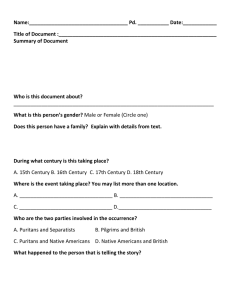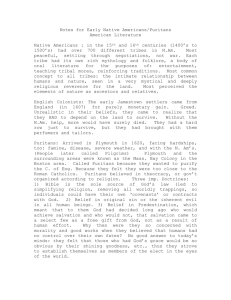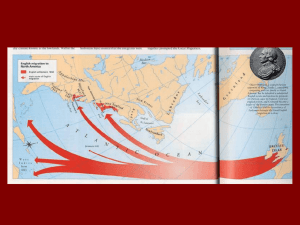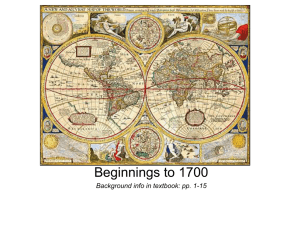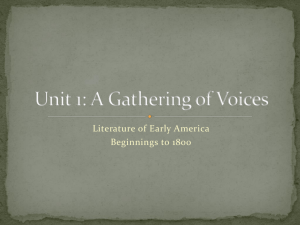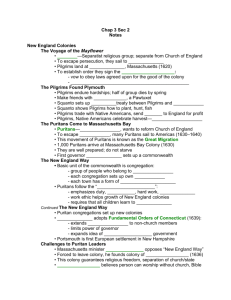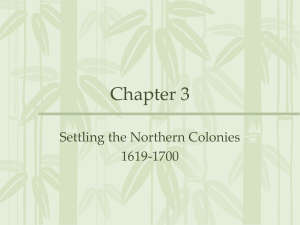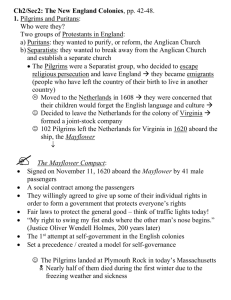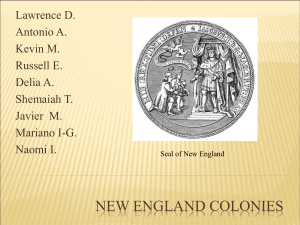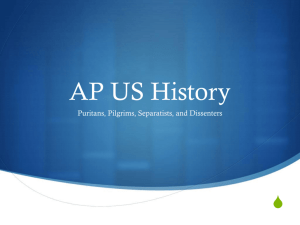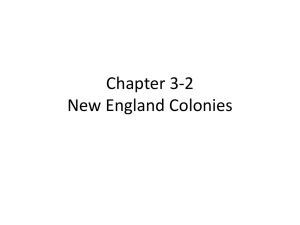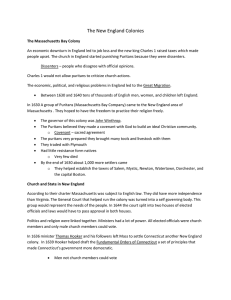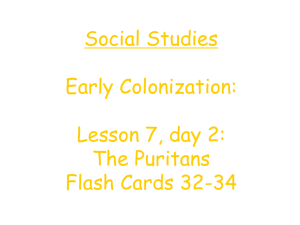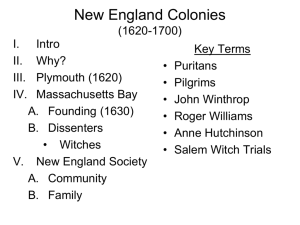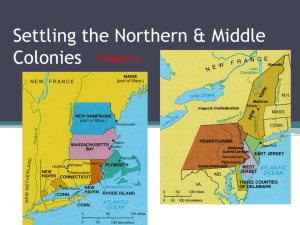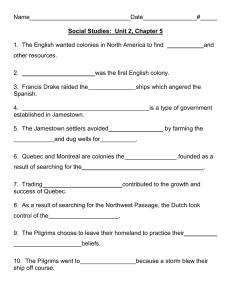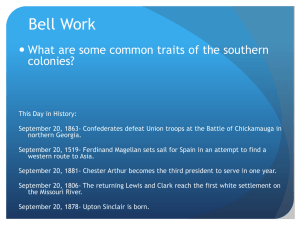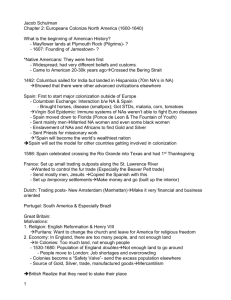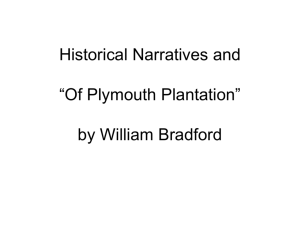Puritanism and American Literature
advertisement
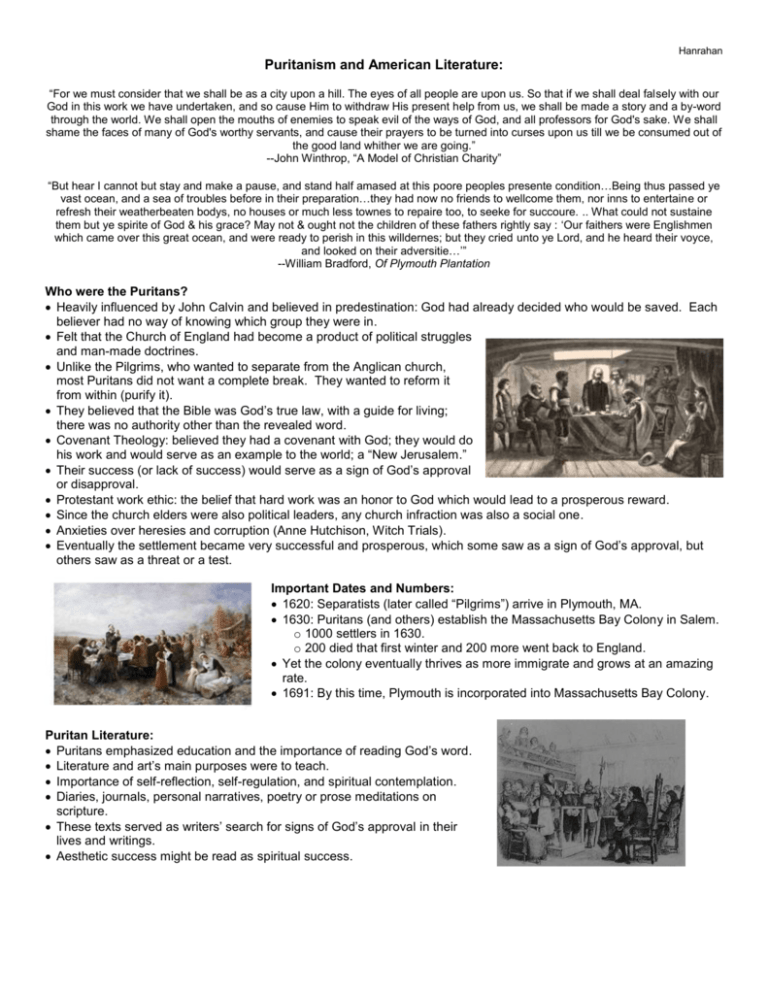
Hanrahan Puritanism and American Literature: “For we must consider that we shall be as a city upon a hill. The eyes of all people are upon us. So that if we shall deal falsely with our God in this work we have undertaken, and so cause Him to withdraw His present help from us, we shall be made a story and a by-word through the world. We shall open the mouths of enemies to speak evil of the ways of God, and all professors for God's sake. We shall shame the faces of many of God's worthy servants, and cause their prayers to be turned into curses upon us till we be consumed out of the good land whither we are going.” --John Winthrop, “A Model of Christian Charity” “But hear I cannot but stay and make a pause, and stand half amased at this poore peoples presente condition…Being thus passed ye vast ocean, and a sea of troubles before in their preparation…they had now no friends to wellcome them, nor inns to entertaine or refresh their weatherbeaten bodys, no houses or much less townes to repaire too, to seeke for succoure. .. What could not sustaine them but ye spirite of God & his grace? May not & ought not the children of these fathers rightly say : ‘Our faithers were Englishmen which came over this great ocean, and were ready to perish in this willdernes; but they cried unto ye Lord, and he heard their voyce, and looked on their adversitie…’” --William Bradford, Of Plymouth Plantation Who were the Puritans? Heavily influenced by John Calvin and believed in predestination: God had already decided who would be saved. Each believer had no way of knowing which group they were in. Felt that the Church of England had become a product of political struggles and man-made doctrines. Unlike the Pilgrims, who wanted to separate from the Anglican church, most Puritans did not want a complete break. They wanted to reform it from within (purify it). They believed that the Bible was God’s true law, with a guide for living; there was no authority other than the revealed word. Covenant Theology: believed they had a covenant with God; they would do his work and would serve as an example to the world; a “New Jerusalem.” Their success (or lack of success) would serve as a sign of God’s approval or disapproval. Protestant work ethic: the belief that hard work was an honor to God which would lead to a prosperous reward. Since the church elders were also political leaders, any church infraction was also a social one. Anxieties over heresies and corruption (Anne Hutchison, Witch Trials). Eventually the settlement became very successful and prosperous, which some saw as a sign of God’s approval, but others saw as a threat or a test. Important Dates and Numbers: 1620: Separatists (later called “Pilgrims”) arrive in Plymouth, MA. 1630: Puritans (and others) establish the Massachusetts Bay Colony in Salem. o 1000 settlers in 1630. o 200 died that first winter and 200 more went back to England. Yet the colony eventually thrives as more immigrate and grows at an amazing rate. 1691: By this time, Plymouth is incorporated into Massachusetts Bay Colony. Puritan Literature: Puritans emphasized education and the importance of reading God’s word. Literature and art’s main purposes were to teach. Importance of self-reflection, self-regulation, and spiritual contemplation. Diaries, journals, personal narratives, poetry or prose meditations on scripture. These texts served as writers’ search for signs of God’s approval in their lives and writings. Aesthetic success might be read as spiritual success.
